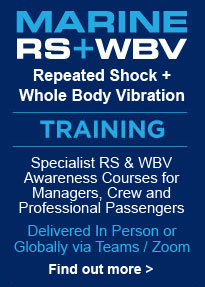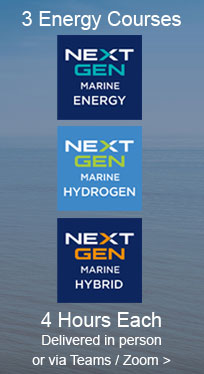Wind Farm Support Vessels 2017

14.03.2017

Wind Farm Support Vessels 2017
Wind Farm Support Vessels 2017 is being held at the Royal Institution of Naval Architects headquarters in London on 29 & 30 March 2017.
Vessel operators are keen for new Wind Farm Support Vessel designs to meet the changing demand of the offshore wind sector. As the Wind Farms grow and mature, maintenance management is playing a larger role and changing the operational profile of the vessels.
It is becoming safer and more economical for technicians to stay on station at the wind farms for longer periods. Support vessels are making a number of stops, with a subsequent period of loitering, before repeating the process on the way back to port. All of which places a different set of demands on the powering of the vessel.
Human System Integration continues to be important in the design, and more research is being carried out on cabin and wheelhouse ergonomics.
The standards expected in terms of comfort and facilities for the technicians, who may be required to be stay on board for longer periods and in higher sea states, are also increasing. There also remains the critical issue of the safe transfer of crew and technicians between shore and turbine, and vessel and turbine.
Offshore wind farm support vessels have been one of the most dynamic maritime construction and operational sectors over the last 10 years. There are now around 400 vessels operating in the European market. Supply and service vessels are increasingly in demand as offshore windfarms continue to expand with new sites being developed in Europe, Asia, and the USA.
Wind Farm Support Vessels 2017 investigate the impact of new standards, new regulations, and new developments made within the industry. RINA invites papers from designers, class societies, operators, builders and researchers.
RINA invites papers on all related topics including:
• Vessel Design - Hull, general arrangement, interior. Including innovative features
• Classification & Statutory Requirements - Impact of new rules & regulations
• Powering & Propulsion - Hybrid battery / electric propulsion and fuel efficiency
• Sea Keeping & Manoeuvring - Thrusters, dynamic positioning, trials & evaluation
• Equipment - For transfer of personnel and cargo
• Operational Aspects -Navigation, communication, safety, reliability and efficiency
• Crew Safety & Comfort - Fatigue, health & safety, training, ‘walk to work’ systems
RINA - Wind Farm Support Vessels 2017 - Home >
All images are copyright Hybrid Marine Power 2024 unless otherwise stated.
This does not exclude the owner's assertion of copyright over the material.
eNews
09.07.2024
NEXT GEN Marine BATTERY Workshop via Teams
NEXT GEN Marine BATTERY Workshop is being held via…
Events
Southampton International Boat Show 2024
Dates:
13 to 22 September 2024
Location:
Southampton UK
eArticle
06.10.2023
Challenges of Unpredictable Marine Energy
From running Energy Transition training for significant maritime organisations technology…
Video
Round The World solar boat Turanor PlanetSolar
MS Tûranor PlanetSolar is the largest solar boat in the world. This 35 metre (115 feet) catamaran operates solely on…







